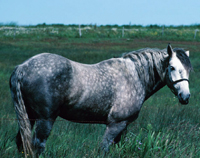 |
| Health
Hazards and Animal Neglect Common in Petting Zoos |
|
Contact with animals is an increasingly common cause of E.coli and salmonella infection and illness for children. Each year in America, numerous children become sickened as a result of visiting animal displays. In December 2004, an outbreak of E.coli bacteria sickened more than 100 people who had visited a petting zoo at the North Carolina state fair. After an outbreak of E.coli infection among children who had visited a Pennsylvania petting zoo, the state of Pennsylvania passed a bill requiring petting zoos to provide hand-washing facilities and to post information about the more than 75 diseases humans can contract from contact with animals. Click here to read a 2005 Centers for Disease Control report on diseases association with animals in public settings. Unfortunately, the problems with petting zoos can’t be solved with frequent hand washing. Avoiding petting zoos is the best way to avoid the inherent cruelty and risk of disease transmission found at such exhibits. |
| |

An Education in Animal Cruelty Katie gave rides at an abusive petting zoo for 20 years. Although she's now safe at a sanctuary, Katie remains fearful of people. |
| Petting zoos and pony rides may seem to be appropriate ways to introduce small children to farm animals, but the animals kept at these attractions often suffer hidden cruelties. Inadequate veterinary care and unsanitary conditions promotes the spread of serious disease. Animals in traveling exhibits live dreary and deprived lives. They are stressed from being trucked from one location to another in cramped trailers, denied normal social groups, and forced into constant contact with humans and animals of other species. Animals in petting zoos are fed and provided water on a schedule that has more to do with the exhibit than when they are hungry or thirsty. While small children are understandably delighted to interact with animals, most are simply too young to treat them responsibly. Even under the most watchful eye, children often tease, poke, and pull the ears or tails of animals at the petting zoo; the animals are denied any refuge from the unwanted attention. Petting zoos are notorious for breeding baby animals to attract attention, and disposing of older and unwanted animals to uncertain fates. Horses used for rides suffer similar treatment, riding around in circles for hours at a time often in direct sunlight. Food and water are sometimes withheld for 24-48 hours before arriving at parties so the animals don't have "accidents." The next stop for these horses may be the slaughterhouse. |
|
Attractions like petting zoos, pig races and pony rides teach children an irresponsible message that it's acceptable to separate animals from their families and natural environment, lock them up and use them for entertainment purposes and as cheap promotional gimmicks. Petting zoos, pony rides and pig races send negative messages that cruelty is O.K. |
| The Animal Rights Foundation of Florida believes that children should be taught to respect animals in their natural environment. Here's how you can help: • Encourage Respect. Animals should be enjoyed by viewing them in their natural environment. • Teach children that no animal should suffer and that all animals deserve their kindness, respect and compassion. • Educate Family and Friends. Let them know how animals suffer when they are used for our entertainment. Offer humane suggestions for interacting with animals, such as volunteering at an animal shelter. Keep in mind that animals at rodeos, circuses and zoos suffer too. |
1431 N. Federal Highway • Fort Lauderdale, Florida 33304 • (954) 727-ARFF


 In
March 2005, a number of children became critically ill, and
several nearly died, after visiting petting zoos at fairs in
central Florida. The Florida Department of Health confirmed
30 cases of E.coli infection (in addition to dozens
of suspected cases), and definitively linked the outbreak to
animals at petting zoos. Several children remained in the hospital
for months, and may have permanent kidney damage.
In
March 2005, a number of children became critically ill, and
several nearly died, after visiting petting zoos at fairs in
central Florida. The Florida Department of Health confirmed
30 cases of E.coli infection (in addition to dozens
of suspected cases), and definitively linked the outbreak to
animals at petting zoos. Several children remained in the hospital
for months, and may have permanent kidney damage. Kindness
Begins With Children
Kindness
Begins With Children